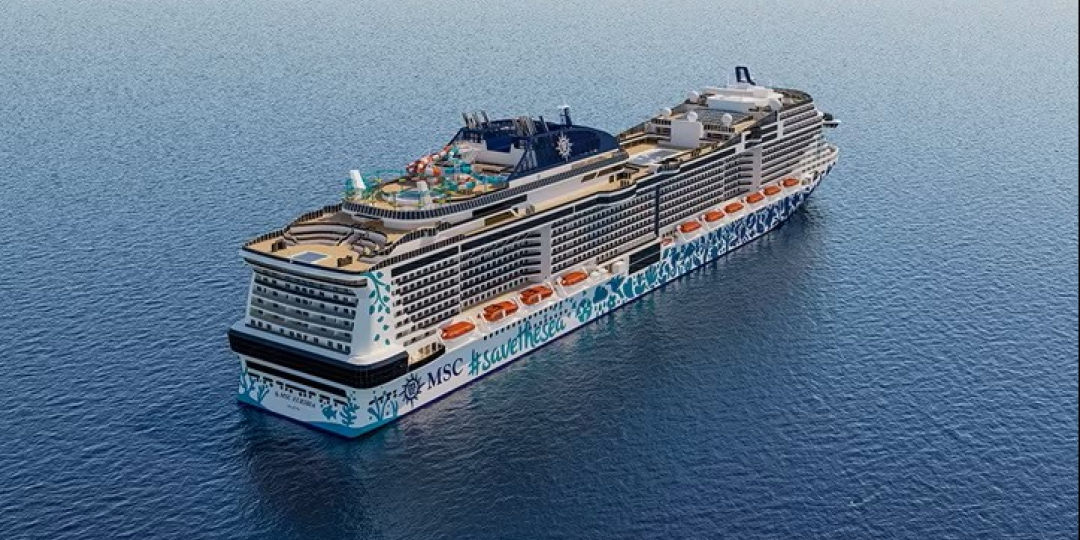The world’s first nett-zero greenhouse gas (GHG) emissions cruise on MSC Euribia, MSC’s newest LNG-powered vessel, proved that nett-zero emissions cruising was possible now, significantly ahead of the 2050 target for the industry.
Following MSC Euribia’s voyage from Saint Nazaire to Copenhagen, between June 3 and 8, MSC Cruises was able to share the key data and insights gathered from the journey.
During the four-day voyage, MSC Euribia performed 11% better than its digital virtual twin and achieved an overall saving of 43 tonnes of fuel. A combination of optimal speed profiles, routing, trim and engine configuration, and strict optimisation of the hotel’s energy consumption, including HVAC, galleys, and lighting, ensured that the ship did not have to use more than two of its four engines during the voyage.
In addition, all the required heat for galleys, heating systems and hot water on board was recovered from MSC Euribia’s engines, so there was no need to use the ship’s boilers for the voyage.
The ship used bio-LNG and a mass-balance system – the most cost-effective and environmentally efficient method of delivering the benefits of renewable LNG, recognised by the EU Renewable Energy Directive. Each batch of bio-LNG produced was certified by the International Sustainability & Carbon Certification.
The successful completion of this voyage sends a clear signal that nett-zero GHG emissions marine operations are possible today, as long as alternative fuels are available. The data harvested and information gathered during the trip is going to be used to optimise the existing ships in the fleet, further driving down emissions intensity across MSC Cruises’ fleet.
“Our engineers on board and our crew, led by Captain Battinelli did a fantastic job optimising the ship's operation. MSC Euribia truly has the most energy-efficient cruise ship design to date, but we need greater availability of renewable fuels for the wider maritime industry to consistently repeat this feat,” said Michele Francioni, Senior Vice President of Optimisation for the Cruise Division of MSC Group. “With the right level of support from governments and international institutions in incentivising acceleration of technological advancements and renewable fuels availability, the industry can achieve nett-zero emissions cruising by 2050.”
The recent signing of a Letter of Intent between MSC Cruises and Gasum, a fuel supplier, will provide MSC with access to liquefied synthetic gas (e-LNG), a renewable fuel produced using hydrogen, created by hydrolysis with renewable energy and captured carbon.
Linden Coppell, Vice President of Sustainability and ESG for MSC Cruises said: “The partnership with Gasum will enable us to access new and cleaner fuels needed to make a significant step toward nett zero cruising. We need more suppliers like Gasum to step up and support our industry. We are ready and waiting to buy more of these new fuels. In the meantime, we will continue to learn from the data from MSC Euribia’s nett zero GHG voyage and use these findings as a benchmark for delivering our next LNG vessel.”














